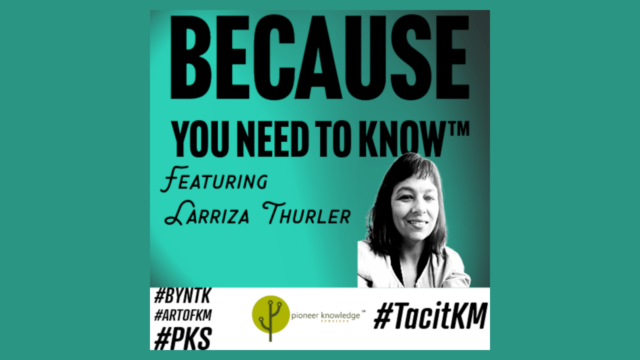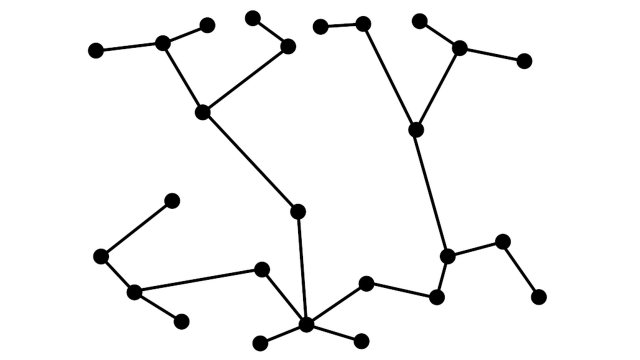Interview: US Army reduces meetings by 70% while improving overall information flow
In a new blog post and video interview, Elise Keith from Lucid Meetings interviews me about my Master’s Degree research at Kent State University, which is being featured here in RealKM Magazine as the Organization Management Rhythm series.
For my research, I decided to map the flow of information while working as the Knowledge Manager for Army Joint Force Headquarters Cyber using the military’s Operational Management Rhythm approach. I focused specifically on the meetings, or meeting flow models, asking:
- Which meetings are we running now? What’s their purpose?
- How are these meetings intended to fit into the larger information flow?
- Is the necessary information reaching the right people at the right time?
- Where are the gaps? Where are the redundancies?
- How might we re-work our meetings to better achieve our objectives?
When I was done, the Army worked to implement my suggestions. Early results include:
- 105 staff hours per week saved by redesigning one meeting
A 30-person weekly meeting that had run four hours each week was reduced to 30 minutes.
- 70% fewer meetings
178 regularly scheduled meetings involving multiple groups reduced to 55.
- Radically increased workforce adaptability
The inter-department meeting schedule for a 4-Star Command, including meetings that coordinate the work of nearly 1.5 million people, was successfully shifted to adapt to the COVID-19 lockdown in a matter of weeks.
- The video interview (which can be viewed above)
- Elise Keith’s blog post
- The Organization Management Rhythm series.
Acknowledgements: Thank you to Tomi Antill, Keith Davis, Brett Patron from JECC, Elise Keith from Lucid Meetings, JFHQ-C Leadership, and Kendra Albright from Kent State University, without whose support this research would not have been possible.







John:
Im sorry but this completely misrepresents the methodology that you are basing your work on. If you are using the word “meetings” indicates that you are straying way high and right of the intent of this process, and how it enables decision making at the speed of relevance, and across all three decision horizons.
I sent a note to Elise Keith as well.
I have to say, im disappointed with this.
BJP
I know this system was built to do the B2C2WG, but as technology and knowledge grows so must our finite understanding of what an event is called, regardless of the label the program will work. We as the DoD have to learn that sometimes we must use the language of the unit rather than ours to have them grow and learn.